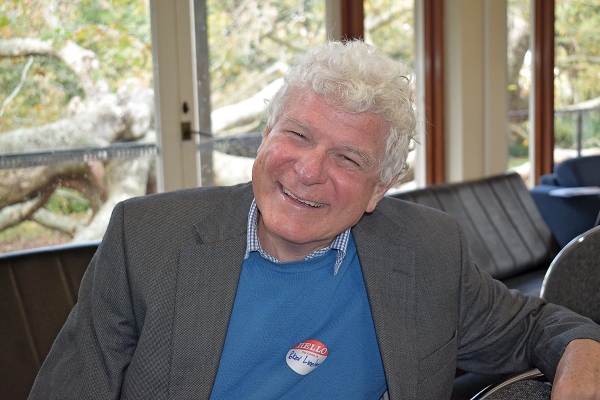Though the startling rise of “no religion” in this year’s census will be of deep significance to every religious group in New Zealand, Massey University History Professor Peter Lineham believes religion still has a future in New Zealand.
Professor Lineham, regional director of the university’s College of Humanities and Social Sciences, said the results of previous censuses from 1956 to 2013 “will suggest that this year’s census will produce a ‘no religion’ level of 42-46 per cent, ‘object to state’ perhaps at 2-3 per cent and ‘not answering question’ at about 8-10 per cent,” he said. “It is the level of growth that is notable.”
Professor Lineham spoke at the seminar held by New Zealand Christians in Science, Is Religion bad for Science? , at the Maclaurin Chapel of the University of Auckland on May 5. A similar seminar was held at St John’s Centre in Wellington on May 12.
“My thesis is ‘no religion’ actually has a different meaning in our contemporary society than in the past generation,” the professor said.
“We need to interrogate those who responded that they [have] got no religion to ponder what they mean and to clarify the types of answers.”
Professor Lineham explained ‘none’ is the standard answer of many people who do not want to tick the census religion option and does not necessarily mean a disbelief in God.
“None is a vague category and some may, in fact, have a residual degree of religious belief, activity and attitudes,”he said.
“No religion, in part in New Zealand, means ‘I’m just not interested in religion’,” he added. “I think, it is a significant proportion of those who are non-religious in our society.”
Professor Lineham noted along with the rise of no religion is the rise of “Christians not otherwise defined” which he saw as a rejection of adherence to any brand of Christianity.
“They are just suspicious of any kind of external authority or organisation,” he said.
Professor Lineham said an effect of the mainstreaming of no religion is that “it [no religion] is seen as the only one that is permissible publicly”.
“In the public space, you are allowed to ridicule religion but you are not allowed to defend it,” he said.
He cited as an example the way public opinion turned against Australian rugby player Israel Folau for his religious belief on homosexuality.
Even though he, personally, did not agree with Folau’s belief, Professor Lineham said Christians need to reclaim their public space.
“The notion of ‘that now we got certain things right, we would stop people from stating their points of view’, that has a really, really serious impact on our notions of a free and democratic society. And I do think this is the logic that we need to challenge, the idea that we are in a scientific, empiricist society and everything else should be excluded, “ he said. “The arguments criticising Folau could be used against virtually any other position at all.”
On the other hand, Professor Lineham said it would be a mistake to fail to understand that many atheists as well as people who claim no religion are deeply spiritual.
He cited a study done by Lizzy Cook from the University of Canterbury who did a study of 41 people who have no religion. A widespread feature in that study was the search for some kind of spirituality that will be meaningful or coherent.
Professor Lineham said Christian apologists should listen carefully to the objections that people have to religion. He added faith needs to be explained, “not as a dogma but as a faith, a faith that needs to sit alongside reason and needs to allow science to speak as well”.

Reader Interactions